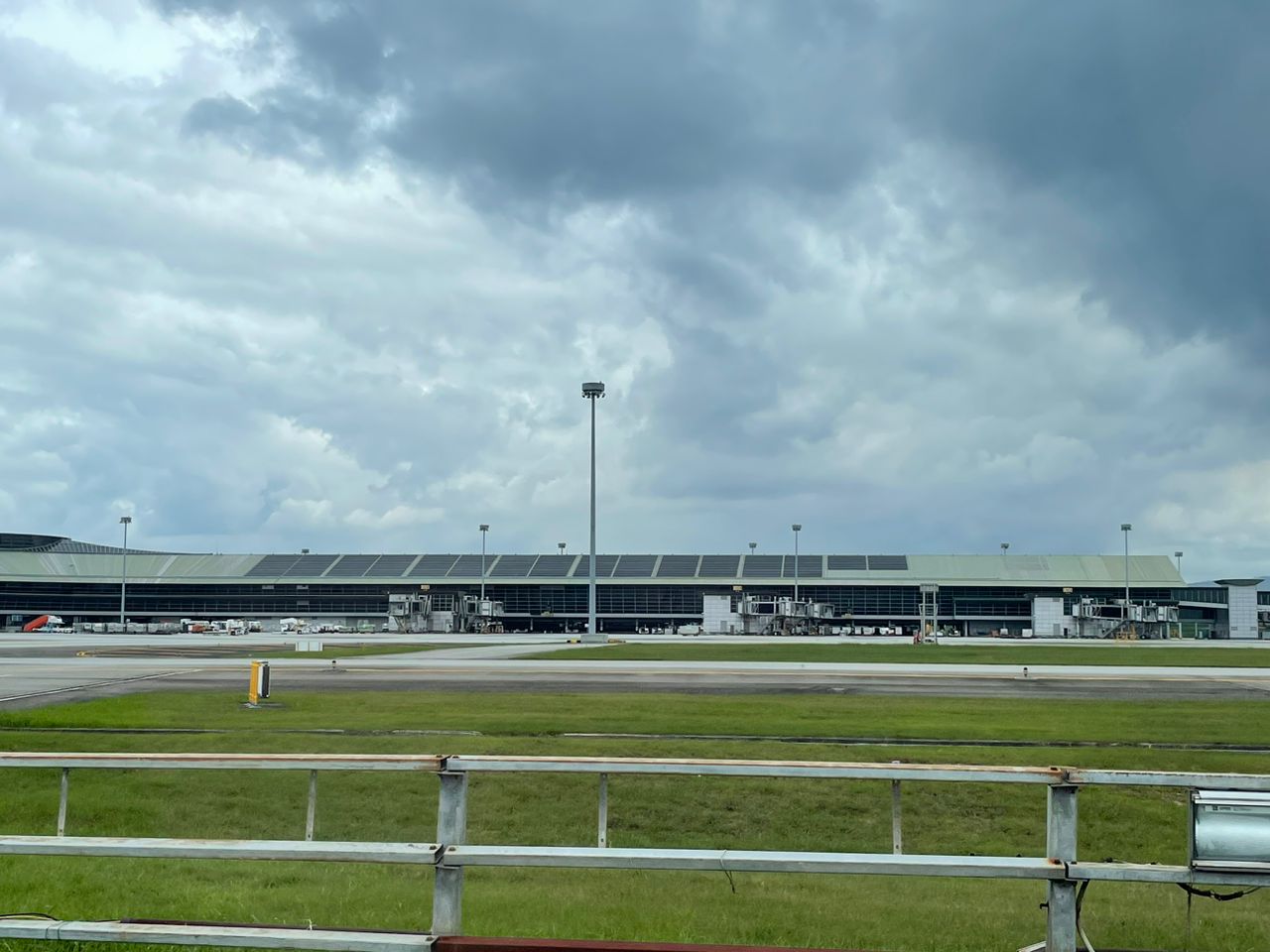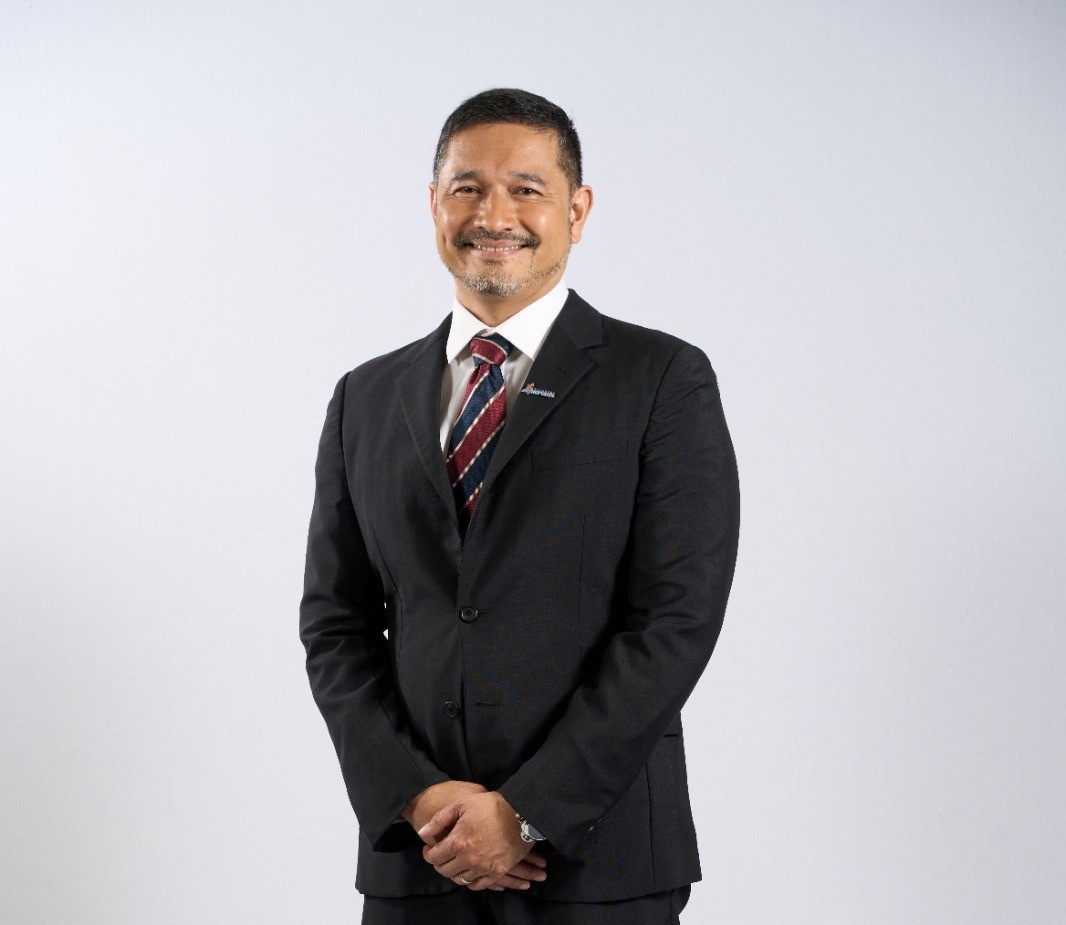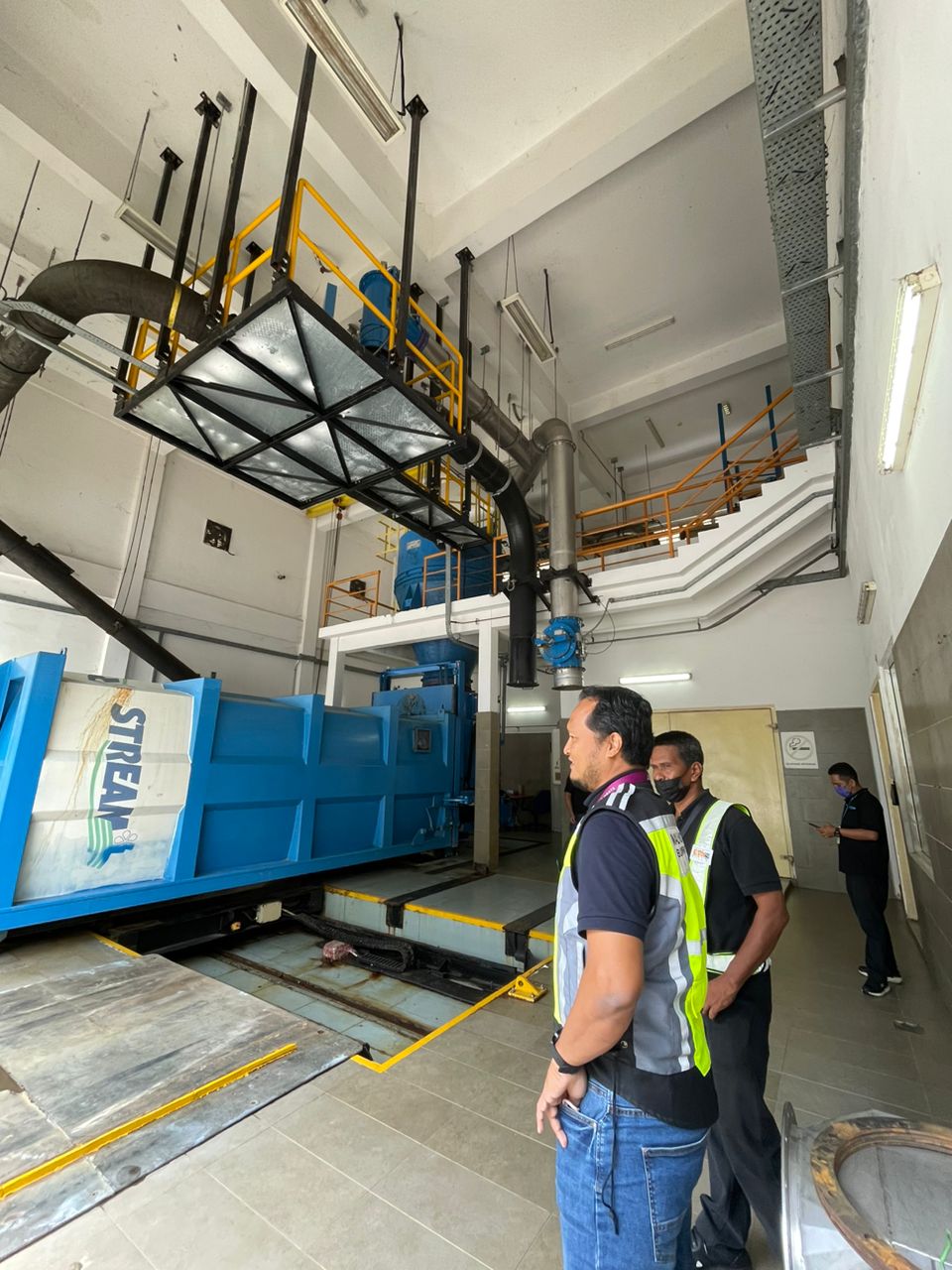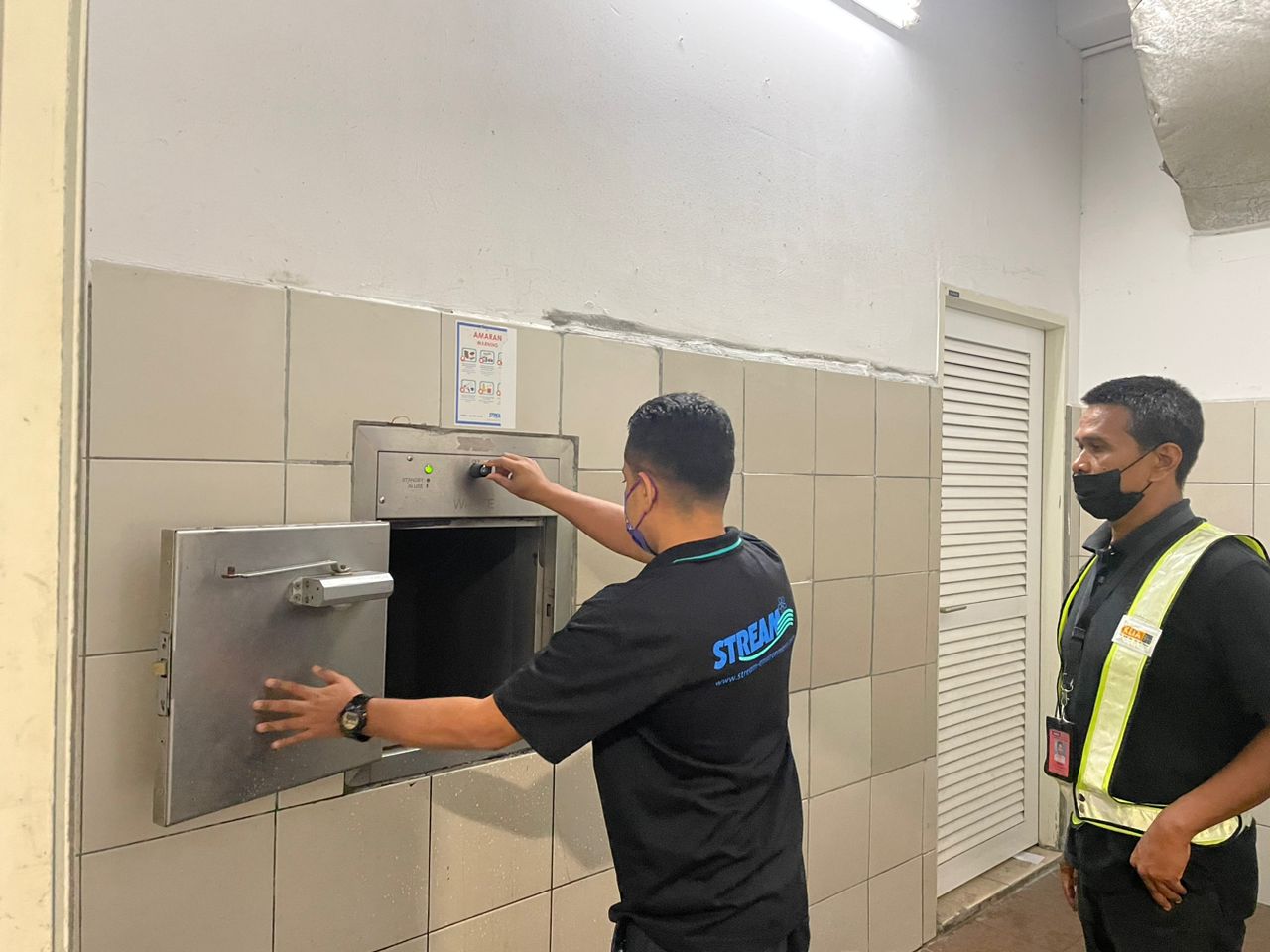In an era where environmental consciousness, social responsibility, and governance practices are at the forefront of global business agendas, organisations worldwide are being scrutinised for their commitment to sustainable practices. Among the entities pioneering this movement is Malaysia Airports Holdings Berhad (MAHB), an eminent player in the aviation industry. As a global airport group that champions connectivity and sustainability, MAHB has taken a comprehensive approach towards integrating environmental, social, and governance (ESG) principles into its operations.

In an exclusive interview, we sat down with Megat Ardian Wira Amiruddin, the Senior General Manager - Strategy at MAHB. As the steward of the company's strategic vision, Mr. Megat Ardian plays a pivotal role in steering MAHB towards a future where connectivity and sustainability are seamlessly intertwined. This interview aims to unravel the layers of MAHB's commitment to ESG principles, exploring the initiatives, challenges, and successes that define their journey towards becoming a global leader in sustainable aviation practices.
In response to the first question regarding the importance of incorporating ESG considerations in the airline industry, Megat emphasises the critical role that ESG application and reporting play in strengthening business resilience. “As the industry looks to recover post-pandemic, adopting ESG principles becomes not only a strategic imperative but also a driver for attracting investors,” says Megat, underscoring MAHB's commitment to ESG that is embedded in its corporate vision.
Therefore, reflecting this commitment, MAHB's KL International Airport (KUL) Sustainability Charter, in place since 2018, focuses on economic, environmental, and social aspects. Moreover, the governance framework adheres to the Malaysian Code and Corporate Governance (MCCG) stipulated by the Securities Commission. In the face of advancing climate change, growing calls for social justice, and heightened scrutiny of corporate financial structures, MAHB recognises the evolving expectations of consumers and investors. Consequently, the company has proactively established a Sustainability Policy and an Environmental Management Policy, aligning its operations with the broader global agenda for ESG. These initiatives underscore MAHB's dedication to transparency, accountability, and responsible corporate citizenship on a global scale.

Megat also shed light on MAHB's impactful initiatives in the realm of social responsibility. Among these initiatives is the #MyAirportCARES program, a community engagement effort designed to assist those in need, particularly focusing on the B40 demographic. Another noteworthy initiative is 'Highfliers,' a program dedicated to nurturing selected students from families of MAHB’s employees throughout their secondary school journey. Additionally, Megat highlighted the crucial role played by MAHB’s in managing 17 Short Takeoff and Landing Ports (STOLports) located in rural areas, predominantly in Sabah and Sarawak, connecting these communities to the broader nation and facilitating the transportation of essential supplies.
In 2022 alone, MAHB’s employees contributed a commendable 3,603 volunteer hours to various community initiatives, participating in 70 programs, including blood donation drives, community clean-up projects, food donations, and providing essential learning tools and career talks for students, showcasing the company's commitment to making a positive impact beyond the confines of aviation operations.
MAHB's Sustainable Future: Journey to Net Zero Carbon by 2050 and Environmental Master Plan 2.0

As one of the world's largest airport operator groups, it has embarked on a journey towards achieving Net Zero Carbon by 2050 through its Environmental Master Plan 2.0. This comprehensive plan focuses on eight key environmental aspects, including carbon emissions, energy consumption, water management, waste reduction, air quality, noise, wildlife, and land and water contamination.
Megat introduced their new targets for absolute carbon reduction, aligning with the 12th Malaysia Plan and the Paris Agreement. The Environmental Master Plan 2.0, divided into two phases, aims to effectively reduce carbon emissions within the company's direct control. These initiatives include the establishment of energy-efficient systems through asset replacement and upgrades, actively increasing reliance on renewable energy via Energy Performance Contracts, and enhancing employee communications to raise awareness of energy reduction measures.
Megat elaborated on MAHB's strategic integration of technology and innovation as a pivotal element in their commitment to sustainability which is The Digitisation Programme, focuses on enhancing the passenger journey and operational efficiency. The Airport Collaborative Decision Making (ACDM) initiative optimises airside operations, reducing fuel burn and emissions by streamlining taxiing times, gate assignments, and take-off sequences.
He said, “A collaborative effort involving various stakeholders, ACDM extends its impact to environmental management, fostering sustainable practices like the coordinated use of electric ground handling equipment and shared renewable energy sources”. Another noteworthy technology, EZPaz, employs biometric enrollment and verification to minimise physical document checks, diminishing reliance on paper and reducing waste. Next is MYairports mobile app which contributes to sustainability by promoting paperless processes, offering carbon footprint tracking, and providing eco-friendly travel tips. Megat further explained that the future plans include reducing Flight Information Displays to curb waste and energy consumption, while potential features like carbon footprint calculators aim to increase passenger awareness and engagement in MAHB's sustainability initiatives.
MAHB's Sustainable Initiatives: A Focus on Renewable Energy, ESG and Carbon Reduction through Airport Carbon Accreditation

In response to the query about efforts to increase the use of renewable energy and reduce fuel consumption, Megat highlighted MAHB’s' proactive engagement in the Airport Carbon Accreditation (ACA) programme since 2015, led by Airports Council International (ACI).
This initiative not only provides guidelines and assurance on carbon emission reduction but also aligns with the commitment towards achieving Net Zero Carbon Emission by 2050. As part of this program's activities and best practices, MAHB is strategically planning to implement an additional Solar Photovoltaic (PV) project and Electronic Vehicle (EV) Charging Station project in the 2024 transformation plan. The organisation plans to introduce EV, partnering with EV infrastructure and providers for passenger transportation to and from the airport.
The recent initiative undertaken by MAHB underscores the company's commitment to long-term environmental sustainability. Currently boasting a solar capacity of 14MW at KUL and 8.5MW for 6 other airports in its network, MAHB's forward-looking strategy demonstrates a proactive stance in addressing environmental concerns and embracing renewable energy solutions.
To date, KUL has incorporated solar panels onto Terminal 1's satellite building and long-term car park canopy. Meanwhile, Penang International Airport, Langkawi International Airport, Sultan Ahmad Shah Airport in Kuantan, Malacca Airport, and Kota Kinabalu International Airport have adopted PV power systems and reported a combined solar energy output reaching 19,122MWh, with a corresponding drop of 12,219,172.81 tCO2 (total carbon dioxide) in emissions in 2022. The total solar energy produced by MAHB would be sufficient to power approximately 218,565 10-watt LED light bulbs or 4,615 households for one year.
Looking ahead, MAHB is poised to further bolster its solar energy capacity, strategically utilising its land banks at KUL to add an additional 30MW. This expansion aligns seamlessly with MAHB's ambitious target of reducing CO2 emissions at KUL by 25% by 2026, a pivotal objective outlined in the MAHB 3-year business plan for 2024-2026.
In its ongoing commitment to sustainable practices, MAHB aspires to further develop EV infrastructure at KUL. This involves the installation of charging stations, the creation of more EV friendly parking facilities, and the establishment of dedicated pickup zones for EVs. In a significant move towards carbon reduction, MAHB is strategically planning to replace existing diesel-operated vehicles with electric alternatives in airside operations at KUL. This transition will encompass aircraft tugs and baggage tractors. As part of the comprehensive KUL EV Transformation Plan, MAHB aims to provide charging station facilities and collaborate with ground handlers to facilitate the shift from diesel to EV in their operations. This multifaceted initiative stands to contribute significantly to the reduction of both Scope 1 and Scope 3 emissions, exemplifying MAHB's holistic approach to environmental sustainability.
In conclusion, MAHB is steadfast in its commitment to becoming a more sustainable organisation in 2024. The ESG goals outlined by Megat underscore the focus on environmental pillars, including the increase in renewable energy sources, the provision of vehicle charging facilities, and the replacement of assets with more energy-efficient alternatives. The aim to establish a MAHB Sustainability Framework reflects the organisation's dedication to guiding and achieving its comprehensive sustainability agenda, reinforcing MAHB’s role as a responsible and forward-thinking player in the aviation industry.
The views expressed here are those of the author/contributor and do not necessarily represent the views of Malaysiakini.

